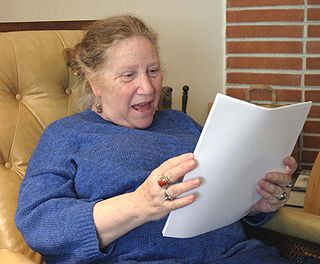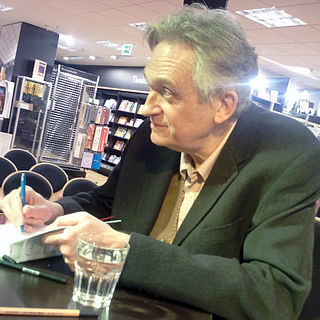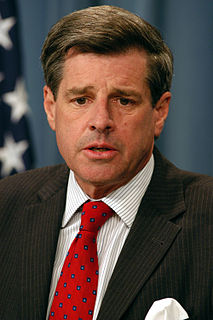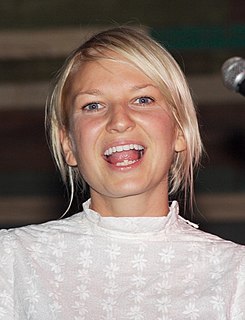A Quote by Jane Hirshfield
Poems give us permission to be unsure, in ways we must be if we are ever to learn anything not already known. If you look with open eyes at your actual life, it's always going to be the kind of long division problem that doesn't work out perfectly evenly. Poems let you accept the multiplicity and complexity of the actual, they let us navigate the unnavigable, insoluble parts of our individual fates and shared existence.
Related Quotes
There are definitely connections between poems, but I wanted each to stand on its own. I guess it goes back to the idea of trying to zoom in and out, and to modulate, so there are different ways of looking at any experience for the reader. Even having short poems and long poems - there has to be some kind of variation in the experience of reading as a whole.
Here in the United States, we speak with reverence of authentic experience. We write poems about our daddies taking us fishing and breaking our hearts by making us throw the little fish back into the river. We even tell the reader the kind of car we were driving, the year and the model, to give the impression that it’s all true. It’s because we think of ourselves as journalists of a kind. Like them, we’ll go anywhere for a story. Don’t believe a word of it. As any poet can tell you, one often sees better with eyes closed than with eyes wide open.
Poems offer us counter-knowledges. They let us see what is invisible to ordinary looking, and to find in overlooked corners the opulence of our actual lives. Similarly, we usually spend our waking hours trying to be sure of things - of our decisions, our ideas, our choices. We so want to be right. But we walk by right foot and left foot.
Maketa Groves has a strong, bright lyric gift. Her poems come out of music and are full of music. They bring us the sounds of the streets and the sounds of nature, and make us see once again that they are parts of the same song. She celebrates American lives as they are lived today: the mother scrubbing her kitchen floor at midnight, the drag-queens in the Tenderloin, the homeless woman knitting in the courtyard. This is poetry that relentlessly shows us the beauty in the world, with all its struggles and complexity, and demands that we go out to meet it with open hearts.
So - our readiness to meet and defeat this kind of possible attack is forced upon us, both as a potent preventive of actual war and to insure survival in event of attack. This alertness to danger has to be translated into specific policies and activities in the several parts of the world where our rights - our way of life - can be seriously damaged. Work of this kind occupies my days and nights.
True friends see who we really are, hear our words and the feelings behind them, hold us in the safe harbor of their embrace, and accept us as we are. Good friends mirror our best back to us, forgive us our worst, and believe we will evolve into wise, wacky, and wonderful old people. Dear friends give us their undivided attention, encourage us to laugh, and entice us into silliness. And we do the same for them. A true friend gives us the courage to be ourselves because he or she is with us always and in all ways. In the safety of such friendships, our hearts can fully open.
Meditation accepts us just as we are-in both our tantrums and our bad habits, in our love and commitments and happiness. It allows us to have a more flexible identity because we learn to accept ourselves and all of our human experience with more tenderness and openness. We learn to accept the present moment with an open heart. Every moment is incredibly unique and fresh, and when we drop into the moment, as meditation allows us to do, we learn how to truly taste this tender and mysterious life that we share together.
It is love that transports us, that fills us with joy! Love turns life into one long adventure, every encounter is a dazzling experience - well, not always, of course, but in actual fact, it is our less successful love affairs that enable us to appreciate the others. I think love protects us from one of the biggest problems facing the modern world: boredom.
I'm trying to work out a way to be a singer and to create cool content. I'm willing to do that as an entertainer. But I'm not willing to give up my actual self. And the way the system is built up, there'll be a backlash soon. Just recently some people published 11 photos of Sia's face. It's a bummer for me because it's going to elevate my profile and make me more recognizable. But I don't look the same as I did when I used to have my photo taken. Music is for your ears, not your eyes, right? But film is for your eyes, and I would like to give you something.
And the view was suddenly clear to me. The world opened out to its grim beyonds and I realized that, at forty, one must learn the rigors of acceptance. Capitalize it: Acceptance. I needed to accept what was put before me--be it a watery grave in Ireland's only natural fjord, or a return to the city and its grayer intensities, or a wordless exile in some steaming Cambodian swamp hole, or poems or no poems, or children or not, lovers or not, illness or otherwise, success or its absence. I would accept all that was put in my way, from here on through until I breathed my last.






































